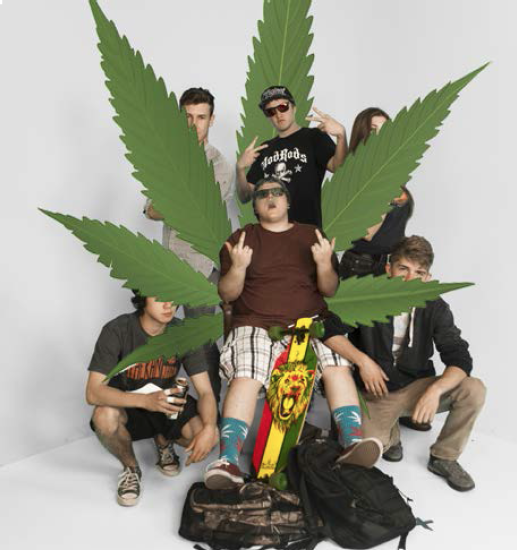Jeremy Logan
The Communicator
Until recently, marijuana users have been considered criminals. For years those who partook in recreational marijuana use have had to find multiple ways to circumnavigate laws, hide their use, and protect themselves from search and seizure. As of December 1st, 2013, laws in Washington have changed, yet ask student smokers on campus and their response is that they still feel ostracized, and some worry about the repercussions of the quai-legalization.
A group of marijuana users on campus, unofficially called, “the Green Club” see nothing wrong with their use of the drug. Although it is still illegal to consume publicly, the penalty is civil, not criminal, and is punishable by a maximum fine of 100 dollars.
“We congregate here, but stop smoking when people come by; we respect them,” a student at SFCC and a founding member of the Green Club, who chose not to be named, said.
The students see themselves as unobtrusive, and further, a positive impact on the areas that they meet at. “We clean up all the trash around here.”
“We are the only reason there is a trash can in the area,” another member, who chose not to be named, said.
Overall, marijuana reform is considered a huge win for marijuana users and a large proponent to the end of the decriminalization of marijuana.
“I’ve been arrested for possession. I’ve been arrested for attempt to distribute. I’ve been picked up lots of times,” Nathan Arguello, a student at SFCC, said, “I’ve done jail time for it.”
The change in state laws could be viewed as a win yes, but students at Spokane Falls have other concerns when it comes to corporate involvement and possible take-over of the industry.
“I’m a medical provider,” Tyson Penhallegon, a
student at SFCC, said. “Once recreational marijuana is in business, people with their own grow ops [operations] will be pushed out of the way.”
As it stands now, Penhallegon is allowed to have 12 different plants in 3 different cycles growing at one time. He is allowed to possess up to 2 ounces of marijuana, though the patient he provides for may possess more.
“I am allowed to handle transport, cure, produce, bake into cookies, turn it into whatever I want,” Penhallegon said.
According to the liquor control board, “I-502 creates three separate tiers: marijuana producer, marijuana processor, and marijuana retailer. Specific license requirements are detailed in the proposed rules.” The rules for licensing can be found at, https://lcb.app.box.com/adopted-rules.
Arguello is concerned that when big business takes over the industry, the product will be altered in order to maximize profits.
“Wal-Mart is going to be selling weed in Washington and Colorado,” Arguello said. “It’s fucking Wal-Mart so if Wal-Mart is going to be corporatizing then they are going to want bigger, faster, stronger. They are going to try to add GMO’s, and what’s that going to do to the smoke [marijuana]? What’s that going to do to us [the consumer]?”
Arguello also brought up concerns about Monsanto soy seed-esque behavior. In reference to Monsanto’s soy seed patent practices, in which they have shut down many small farmers businesses after investigating and finding that the farmers land had been contaminated with Monsanto’s seed.
“It’s going to be exactly like the Monsanto thing, said Arguello, “That’s one thing that I worry about, is that they’re going to claim that, ‘this is my strain, I own this strain’.”
Luke Wetzler, another student at SFCC who has recently left the military, says he takes marijuana for insomnia and PTSD [Post Traumadic Stress Disorder].
“I would like to see a point where nobody cares, where you could just walk down the street and smoke weed like cigarettes.”
“Don’t hold your breath,” another student said.
But holding their breath is exactly what they are doing.
